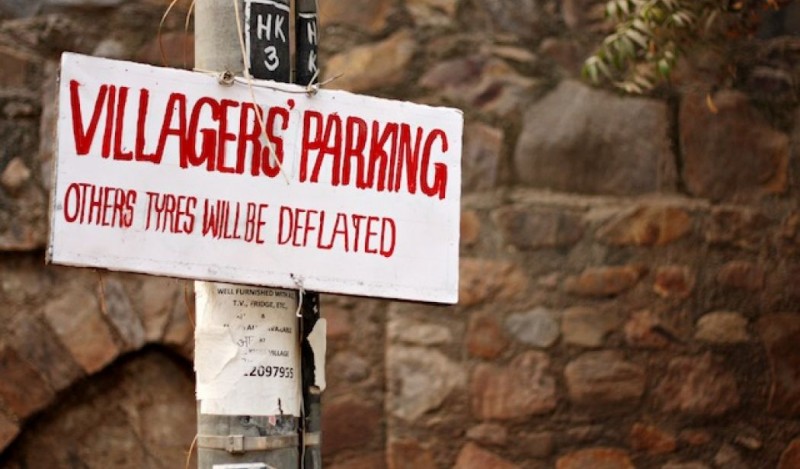
The People
India has more spoken languages than a nomad has luggage stickers on a suitcase. In Delhi, Hindi is spoken and understood by almost everyone. English is commonly spoken (don’t ask a neighbouring table at a café how their English is so good; it was after all our medium of education) and for those not educated in the language, English is still commonly understood. I’ve noticed so many tourists trying to ‘school’ locals in the language that they feel is superior – please don’t do this. It’s condescending. Remember, when you repeat words in your chosen language, you put the burden of comprehension on the other person. Instead, try to interpret what someone else is trying to say in their language of comfort. It’s amazing how simple it is to understand a fellow human being if you just try and listen.
‘Please’, ‘thank you’ and ‘sorry’ are universal expressions, both in terms of comprehension and in their capacity to soften the hardest critic.
If you’re up for some people watching, here’s where you may want to head.
As far as religion goes, India is by constitution a secular country. While Hindus form the population majority, Islam, Christianity and Sikhism have a huge number of practising followers. It’s safe to say that no matter what religion you affiliate yourself with, in India you’ll always have company. In any case, nobody has any business in asking you what your personal belief system is.
Some of Delhi’s signature religious sites are listed here.
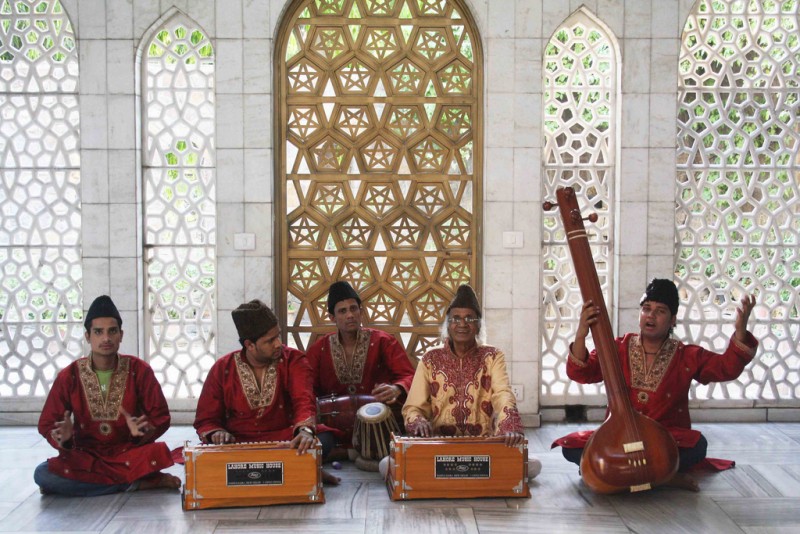
The cow is considered sacred for Hindus (we have to patiently wait for them to cross the road when they choose to!), and beef is not served everywhere. Instead you will find buffalo meat, or boeuf. Pork is considered unholy in Islam; it won’t be served in traditional Muslim restaurants or areas with mosques.
One last thing – the caste system is notoriously known to be weaved into the fabric of Indian culture. It is highly nuanced and definitely more complex than the textbook explanation. Also, lines of social hierarchy tend to be drawn on socio-economic class more than anything else. At one time, caste and economic class used to go hand in hand. They don’t necessarily anymore.
Attitudes Towards Women
The first thing you may notice, as a person of any gender, is the staring. Men do it, women do it, it’s a bizarre little habit and probably comes from the fact that personal space is hardly prized. Maybe the traditional system of living in large joint families has something to do with the devaluation of individual privacy?
As a woman, you will undoubtedly see this more. And if you don’t look South Asian, even more. Firstly, I’m sorry that anyone is ever made to feel uncomfortable. In general, it is best to not pay attention.
Taking it even further are some people who believe ‘eve-teasing’ is harmless fun. It is certainly not, and is best not acknowledged.
For small pockets of people, it is still surprising to see women travel the world so freely and indeed, even leave their homes after dark. Again, if you’re in well populated areas with people who seem more or less like you, you’ll never come across this. Some of these people may not have had such opportunities themselves and could hold a degree of animosity towards people who do. Some might be highly fortunate but still extremely traditional in their world views. However, there is also a Delhi full of urban, educated, globe-trotters, of genteel military men and women and of liberal people unquestioning of equal opportunities between genders. Go where you see your tribe!
Sensitivities
Some do’s and don’ts and to be mindful of:
Don’t start a fight. Although it may be tempting to stand up for what you believe in, those intent on creating trouble can hardly be convinced otherwise. You may not find the crowd support that you want, and police intervention tends to be too little or very late.
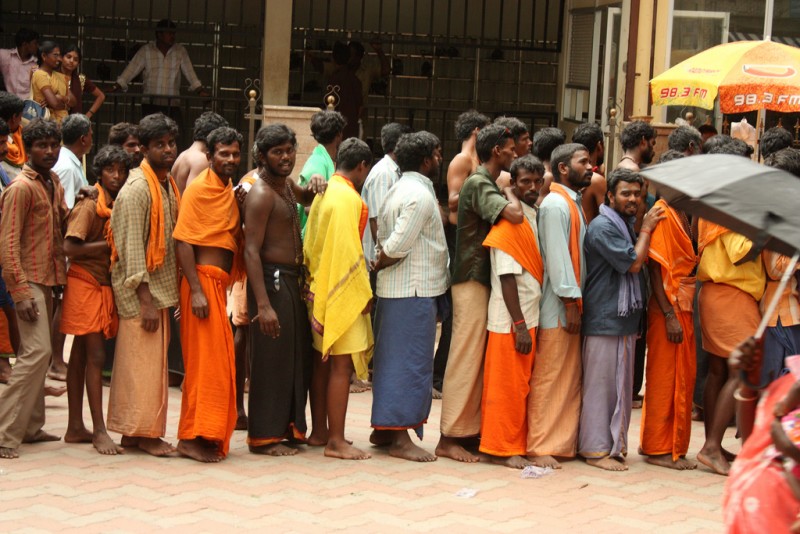
You will also notice that space, in general, is not our specialty. When standing in a queue (which looks more like a fan), you may wonder how much quicker the person behind you thinks he/she will get his work done by sticking close to you. A polite ‘excuse me’ might be enough to indicate that some distance is desirable.
Don’t engage in public displays of affection. This can throw off even the most open-minded people of a slightly older generation, only because it is considered disrespectful to engage in a remotely sexual act in the presence of elders. The groom may not even kiss the bride at a wedding!
Do realise that the country as a whole is painfully shy when it comes to open discussion or acts of sexuality. Ironic much for the land that wrote Kama Sutra? Yes, it is hypocritical. We’re working on it.
Do also know that homosexuality is considered a criminal act. For this, we should all collectively apologize. It’s not like there is moral police or actual police waiting around at every corner trying to catch people in the act, and by looking at the number of men holding hands on the road, it may come as a shock. It is what it is. In any case, your sexuality should hardly be the topic of discussion for anybody else.
Do also call your country’s embassy when you arrive just to check in and know who to ask for, if any help is needed. This should be your first port of call if you’re ever in trouble; unfortunately the Indian police system is fighting lethargy and corruption and you’re best not taking this on.
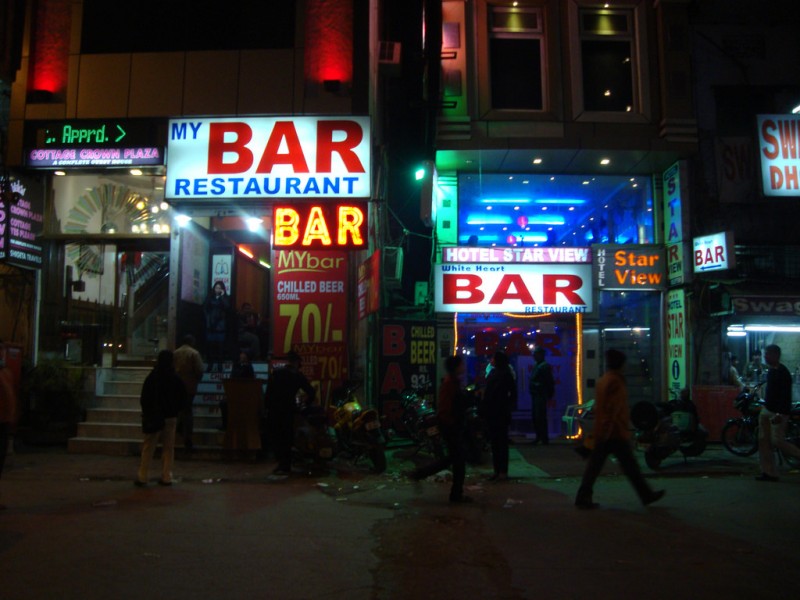
Do enjoy your wine and cocktails! Girls in Delhi like their drink as much as they do anywhere else. But if you’re inebriated and not at your best behaviour, you may again attract the wrong kind of attention and more than anything else, in a new city it’s best to be alert.
Here are some of my favourite watering holes.
General Etiquette
A friendly ‘hi’ or ‘hello’ is usually the way to go, or a simple spoken ‘namaste’ if you feel your acquaintance is not comfortable in English. Women don’t usually shake hands when greeting people. Hugs are normal if you know the person really quite well.
Another thing you must know is that Indians are quite strange when it comes to feet. Your foot must not touch another person, their belongings, books, food or money. The traditional way to ask for blessings is by touching an elder person’s feet as a mark of respect; by inadvertently letting your feet touch something else, it may imply that you feel it is subordinate to you. This is a relatively complicated concept for something that most Indians don’t actually read so much into. It’s just a force of habit to not let our feet touch anything, especially money or a handbag (symbolizing prosperity), a book (symbolizing knowledge), food or another person. Even if the handbag, book or eatable belongs to you!
Do think about what you’re wearing. By all means, you are free to wear what you want and it’s up to you on how much attention you can handle or not. But it’s fair to say that attention will be paid – Delhi isn’t as laidback as a Bombay or Goa. Sleeveless tops and dresses are quite normal, although I’d say watch the neckline. Shorts and short dresses are okay depending on where you are going; if you’re dropping in for dinner at a fancy French bistro, by all means, bring out the dress and heels! But remember you will be in public transport getting to and from there. Maybe keep a stole in your bag to cover up if you sense too many eyes on you? And if you see women dressed without reservation (as they should), remember, they probably just understand the city better than you do. There is no compulsion or expectation to wear Indian clothing; so many of us choose Western wear in any case.
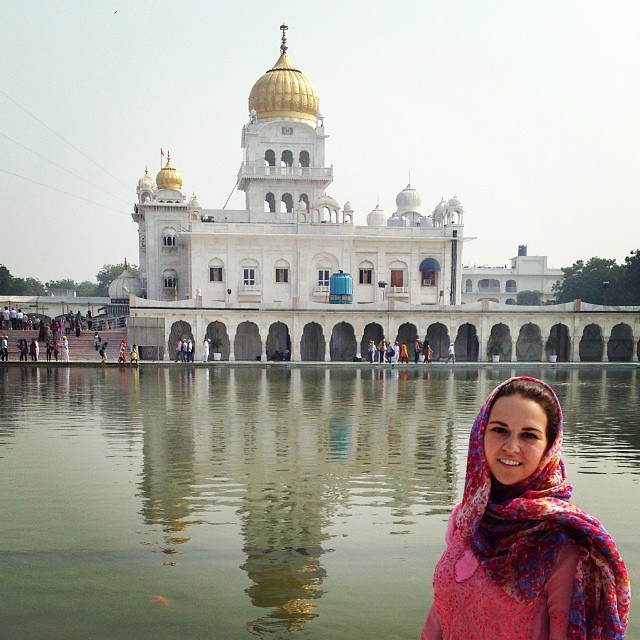
When visiting a place of worship like a temple, mosque or gurdwara, you should cover your head and you will be asked to leave your shoes outside. Some people might also ask for you to leave your shoes out when you visit their homes.
Business Etiquette
In a business environment, handshakes are acceptable and quite normal. A kiss on the cheek kind of greeting is not as widely used.
Business-wear norms follow the protocol of attire observed elsewhere in the professional world. Dress as you would if you were going to a meeting in Singapore, London, New York or any other hub of commerce. Dress down if you work in a more casual industry, in whatever you consider appropriate for your profession.
If your colleagues seem to be your contemporaries, you can use their first names. When in doubt, use Mr. or Ms. and their last name.